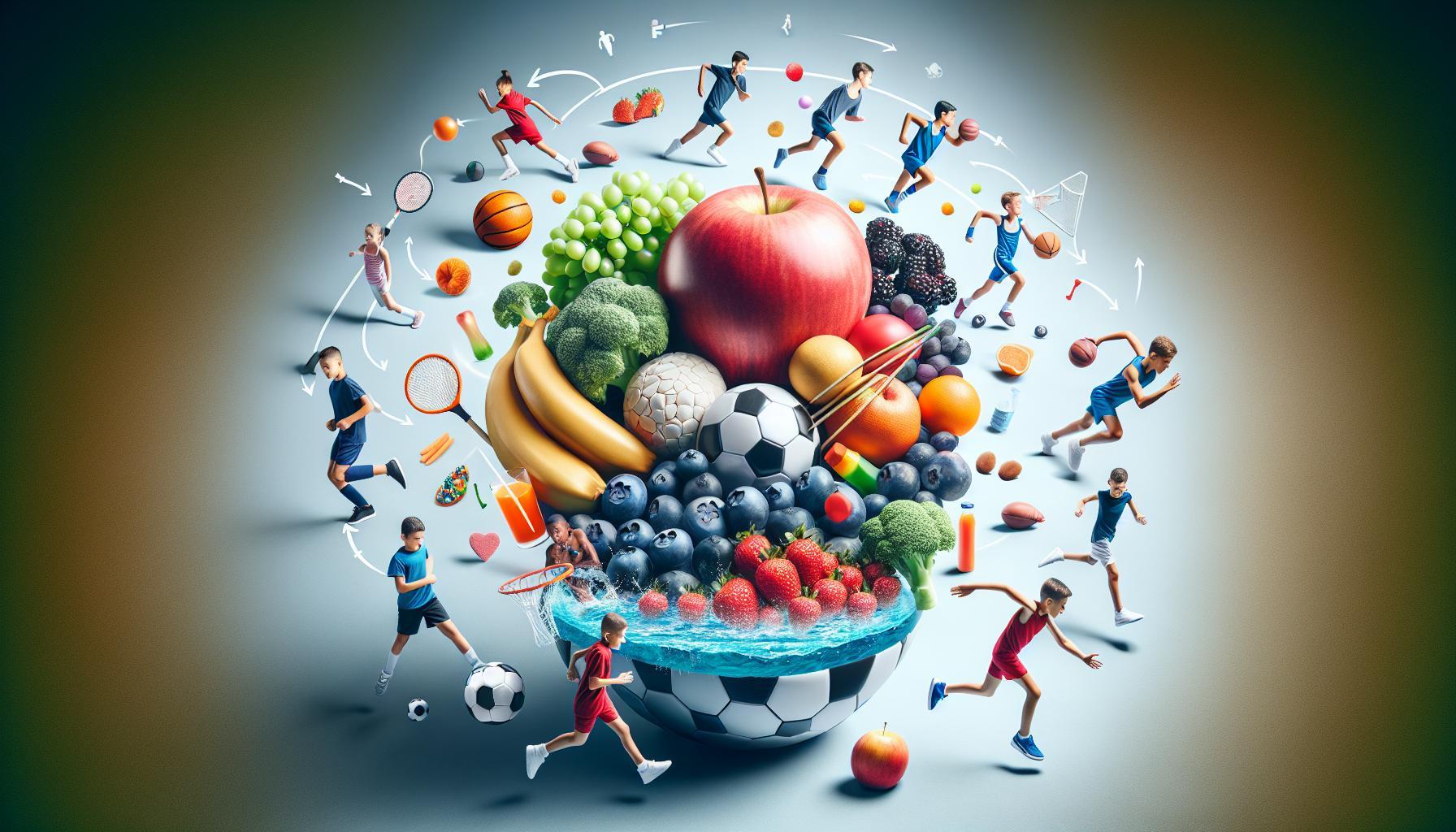The world of athletics is incredibly diverse and exhilarating. However, this world requires not only physical fitness, but also specific nutritional strategies to peak the performance. Especially when it comes to youth athletes, a regimen entailing Balanced Diets for Young Athletes and proper hydration plays a crucial role in shaping their athletic development. This blog post will dive deep into a topic of pivotal importance, “Nutrition for Youth Athletes”. As we explore this topic, we will unravel the impact of a structured diet plan on young athletes, delve into the significance of hydration strategies for sports performance, and decode the importance of micronutrients in their development.
The Role of Carbohydrates in Youth Athletes’ Diet
In the quest for optimal “Nutrition for Youth Athletes”, carbohydrates hold a forefront position. Carbohydrates provide the main source of energy for our body, and this significance increases manifold for youth athletes who consistently demand high energy.
Types of Carbohydrates and Their Sources
Carbohydrates are essential for providing energy to young athletes. They are categorized into simple carbohydrates, found in fruits and sweets, and complex carbohydrates, found in whole grains and vegetables. Consuming the right type of carbohydrates ensures sustained energy during training and competitions.
Timing of Carbohydrate Intake
The timing of carbohydrate intake is crucial for optimizing performance. Consuming carbohydrates before exercise provides immediate energy, while intake after exercise helps replenish glycogen stores, aiding in recovery.
Understanding the Importance of Protein
Next in line for the “Nutrition for Youth Athletes” is protein. Proteins not only help in building and repairing muscles but also contribute to the production of hormones and enzymes, which leads to a potentially increased performance in the field.
Protein’s Role in Muscle Repair and Growth
Protein is vital for muscle repair and growth, especially after strenuous activities. It helps in the recovery process and in building new muscle tissues, which are essential for improving athletic performance.
Recommended Protein Sources for Athletes
Athletes should focus on high-quality protein sources such as lean meats, fish, dairy, and plant-based proteins like beans and lentils. These sources not only provide protein but also essential nutrients that support overall health.
Significance of Good Fats in Athletics
While fats are often misunderstood, they form a cornerstone in the “Nutrition for Youth Athletes”. Essential fats, such as Omega-3 and Omega-6 fatty acids, foster the growth and development of an athlete’s body and are critical for overall health.
Identifying Healthy Fats and Their Benefits
Healthy fats, such as those found in avocados, nuts, seeds, and olive oil, are crucial for young athletes. They provide long-term energy, support cell growth, and help in the absorption of vitamins.
The Impact of Fats on Athletic Performance
While fats are more energy-dense, they are used as a slower energy source compared to carbohydrates. Including healthy fats in the diet can enhance endurance, especially in prolonged sports activities.
The Vitality of Vitamins and Minerals
In the “Nutrition for Youth Athletes”, vitamins and minerals significantly play their part. They aid myriad bodily functions, improve bone health, elevate the immune system, and increase energy production.
Essential Vitamins and Minerals for Athletes
Athletes need a range of vitamins and minerals, such as iron, calcium, vitamin D, and magnesium, to maintain optimal health and performance. These nutrients aid in energy production, muscle contraction, and injury prevention.
Sources and Supplementation
Natural food sources are the best way to obtain vitamins and minerals. However, in cases where diets might be lacking, supplementation can be considered under professional guidance to prevent deficiencies.
Hydration – A Key Component for Athletes
For any discourse about “Nutrition for Youth Athletes”, hydration cannot be overlooked. Hydration aids digestion, maintains body temperature, and lubricates joints, facilitating athletes to perform better and recover faster.
Understanding Hydration Needs
Hydration is crucial for maintaining performance. It aids in temperature regulation, nutrient transport, and muscle function. Athletes need to drink fluids regularly, not just when they feel thirsty.
Electrolytes and Their Role in Hydration
Electrolytes like sodium, potassium, and magnesium are lost through sweat. Replenishing these through sports drinks or foods containing electrolytes can help maintain fluid balance and prevent dehydration.
The Role of Dietary Supplements
While the focus should primarily be on balanced diets, dietary supplements sometimes become necessary in “Nutrition for Youth Athletes”. When applied judiciously, they can plug the gaps in the diet, ensuring all nutritional needs are met.
When Are Supplements Necessary?
Supplements should be considered when dietary intake does not meet nutritional needs. Common supplements for athletes include protein powders, creatine, and iron.
Choosing the Right Supplements
Choosing supplements should be done with caution and ideally under the supervision of a healthcare professional to avoid unnecessary intake and potential health risks.
Conclusion
From the role of different macronutrients and micronutrients to the vitality of hydration, we have navigated through the importance of “Nutrition for Youth Athletes”. When given due consideration, these elements can drastically bolster an athlete’s capacity and, in turn, enhance their performance. We hope the discussion drives you towards making informed and healthier choices for the young champions in your life.
Frequently asked Questions
1. What kind of diet should a youth athlete follow?
A balanced diet rich in proteins, carbs, healthy fats, vitamins, and minerals is essential. Hydration should also be prioritized.
2. How much protein do youth athletes need?
The requirement differs based on age, gender, and activity level. However, on average, youth athletes need about 1.0 – 1.4 grams of protein per kilogram of body weight.
3. Are dietary supplements necessary for youth athletes?
While the main focus should be on a balanced diet, dietary supplements can be used judiciously to bridge any nutritional gaps.
4. How important is hydration for youth athletes?
Hydration is crucial for youth athletes as it aids digestion, maintains body temperature, and lubricates joints, facilitating better performance and faster recovery.
5. How often should youth athletes eat?
Depending on their activity levels, youth athletes should eat every three to four hours to maintain a constant energy supply.










